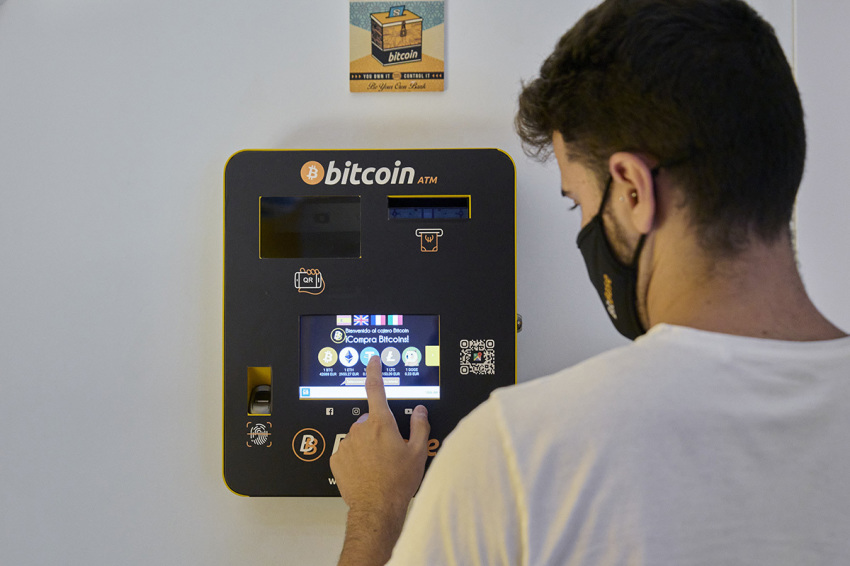What many Christians misunderstand about Bitcoin

There are a lot of misconceptions about Bitcoin among Christians and unfortunately, they continue to persist. In this article, I hope to dispel a lot of the misconceptions which disproportionately affect older people, who have some trouble with the mental models around Bitcoin.
Perhaps the most prominent misconception is that digital things don’t have value and that only physical things that are held in hand can have value. This is a strange claim to make for Christians in particular, as we confess in our creeds our need for redemption, which is metaphysical in nature. The claim that Bitcoin is valueless because we can’t hold it in our hand is like saying that MP3s are worthless because unlike a cassette tape or a CD, you can’t hold it in your hand. There’s value in digital goods like e-books, movies, and music, and they don’t have to have a physical form. The value is in our ability to read, watch, or listen to what we want, when we want.
Further, there are other non-physical things that we pay for, like memberships, intellectual property, subscriptions, and mining rights. Clearly, non-physical things can have value. “But money is different!” They say. Why does money get a carve-out? Generally, the assertion is made because intuitively, they know money needs to be both decentralized and scarce and for many people, this is not intuitive.
The reason why Bitcoin is so hard to grasp for people is that it breaks the mental model of digital things. There are two models of digital goods people have in their heads. The first type of digital goods are infinitely copyable digital stuff, like MP3s, Word files, and web pages. Each can be duplicated with perfect fidelity for the marginal cost of close to zero. Such items are not scarce so they’re difficult to imagine as having value.
The second type of digital goods are strictly controlled items in a centralized service. For example, a membership to Netflix is controlled by the company and cannot be copied like a Word file can. The company can restrict membership if they wish. There are also gift card codes at various e-commerce websites. Such codes are controlled by the company that issues them. They are scarce, but also centrally controlled. A Netflix membership can change price at any time and new gift card codes can be issued by Amazon whenever they want. The scarcity in a centralized context is completely controlled by the central entity.
Until 2009, computer scientists thought these were the only categories of digital goods. Decentralized but not scarce and scarce but centralized. The third category of decentralized and scarce was a huge innovation and completely unexpected. Bitcoin is digital, decentralized, and scarce all at the same time. This is achieved through some very clever uses of cryptography and computer science structures. The result has been one of the largest disruptions of finance that we’ve ever seen.
One important distinction to make at this point is that decentralization is very difficult to achieve. Alternative cryptocurrencies, such as Ethereum, Ripple and Solana, have not achieved decentralization and are really of the second category of digital things, scarce, but centralized. Unfortunately, altcoins have been used by unscrupulous people to scam many people in retail out of their money. The speculative, gambling feel of altcoins has unfortunately marred the reputation of Bitcoin.
The digital nature of Bitcoin is treated with suspicion by older people, because of the old mental model. Many have already dismissed it entirely. They think that digital things are hackable, hard to secure and easily trackable, and therefore, Bitcoin must be, too.
In reality, the possession of Bitcoin is dependent on a secret, which can be stored digitally or physically. This means that Bitcoin can have the same security properties as gold, without weighing nearly as much. The secret can even be memorized, giving it a property right that is superior to any physical object. Many people think Bitcoin is easily hackable and that some internet thief could take your coins by typing on their keyboard for a few seconds like in the movies. The reality is that the computational power required to break the cryptography in Bitcoin would require far more energy than exists in the Milky Way and far more time than the age of the universe. That kind of security is unavailable in the physical world.
Bitcoin is also way more private than other digital transactions or even cash. The tools available for Bitcoin privacy are many, and a few well-executed transactions make Bitcoin really difficult to trace. This is in contrast to physical item transactions, which always require the transport of physical goods. Physical transport is much easier to track than privatized Bitcoin transactions.
Another really common misconception with regard to Bitcoin’s digital nature is that Bitcoin can be “turned off” through the energy grid. This is true of centralized services like Google or Twitter, whose servers can be turned off by depriving them of power. This is not true of Bitcoin, which is run by many individuals who run the Bitcoin software. Of course, many of the users run on grid power, so they can be turned off, but the users are literally all over the world and many are not connected to the power grid. Any single copy of the Bitcoin data is enough to continue operation, and there are literally tens of thousands of such copies. Generators of various types can power the computers running the Bitcoin software and the connections between user computers can get very creative. Internet Service Providers are by far the most popular, but there are other means of connection, such as satellites, radio waves and Starlink. Bitcoin, being decentralized, can essentially survive any huge energy grid and internet infrastructure disruptions and more importantly, everyone on the network is incentivized to keep those connections.
The last misconception I want to cover is that Bitcoin is too volatile to be considered money. This is not so much a technical misconception as it is an economic one. Most currencies in the world are “stable” because of central banks and only to a certain degree. There’s certainly a lot of volatility in the Turkish Lira at the moment, for example, but few people would say that disqualifies the Lira as a currency. The reason why most currencies are relatively stable to the dollar is because of central banks. They manage their own currencies by keeping them to a certain peg range against the dollar. When the cost of their currency is too low against the dollar, they buy their currency from the market using dollar reserves. When their currency is too high against the dollar, they print more of their own currency to make it go lower. The manipulation of central banks is why currencies stay relatively stable. Of course, whenever the dollar reserves run out, these currencies devalue quickly against the dollar, sometimes even triggering hyperinflation.
Bitcoin has a fixed supply of 21M, meaning that such machinations are impossible. It doesn’t have a central bank so the volatility is entirely market-driven. This is why there’s so much volatility over the short-term. However, this is also a very good thing because over the long term, the fixed supply and increasing demand mean that price is the only release valve. Bitcoin has done fantastically against the dollar over the last 10 years precisely because of this dynamic. Lastly, risk and reward are two sides of the same coin. Either there’s volatility and large upside like with Bitcoin, or there’s no volatility and little upside like with many bonds. There’s no free lunch of no volatility and high upside.
Bitcoin breaks our mental models because we’re so used to thinking about digital things in a particular way. The fact that it’s digital, decentralized and scarce is a real innovation, the likes of which we haven’t seen before. The result has been that we’re able to store value without interference from the state, which in a world of financial censorship, is quite valuable.
Jimmy Song is a Bitcoin developer, educator and entrepreneur. He's a programmer with over 20 years experience, an open source contributor to many different Bitcoin projects and the author of Programming Bitcoin from O'Reilly, The Little Bitcoin Book, Thank God for Bitcoin and BItcoin and the American Dream. Jimmy has been a lecturer at the University of Texas, an expert witness in legal cases involving Bitcoin and is an advisor to multiple companies. Jimmy writes a weekly newsletter, Bitcoin Tech Talk and has a podcast Bitcoin Fixes This.



























